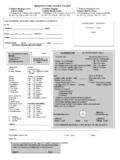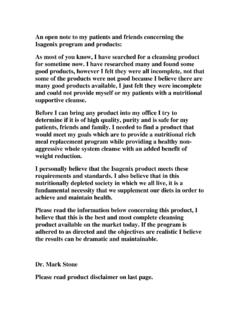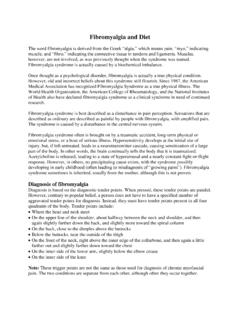Transcription of On Blood Deficiency - Giovanni Maciocia is a world ...
1 6 The European Journal of Oriental MedicineOn Blood DeficiencyOrigin of BloodBlood is derived mostly from the gu qi (food qi) produced by the Spleen. The Spleen sends gu qi upwards to the Lungs, and through the propelling action of Lung qi, this is sent to the Heart, where it is transformed into Blood . The Ling Shu says in chapter 18: The stomach is in the middle burner, it opens onto the upper burner, it receives qi, secretes the dregs, evaporates the fluids transforming them into a refined essence. This pours upwards towards the lungs and is transformed into Blood . 1 There are two other important features in the manufacture of Blood . One is that the transformation of gu qi into Blood is aided by the yuan qi. The other is that the Kidneys store jing which produces marrow: this, in turn, generates bone marrow which contributes to making Blood .
2 A doctor of the Qing dynasty, Zhang Lu, in his book Medical Transmission of the Zhang Family (1695), says: If qi is not exhausted, it returns essences to the kidneys to be transformed into jing; if jing is not depleted, it returns to the liver to be transformed into Blood . 2 From this it is evident that the Kidneys play an important role in the making of Blood , as they store jing and are the source of yuan qi. We can therefore say that Blood is generated by the interaction of the post-heaven qi of the Stomach and Spleen (which are the source of gu qi) and the pre-heaven qi (as the Kidneys play a role in its formation). So, to nourish Blood , we need to tonify the Spleen and Kidneys. It seems remarkable that the Chinese account of the Blood -forming function of bone marrow, so similar to that given by Western physiology, was formulated during the Qing dynasty before the introduction of Western medicine into China.
3 Lin Pei Qin, a doctor of the Qing dynasty, formulated the theory that liver and kidneys have the same source and that Blood is transformed from Kidney jing. For this reason, and also because tian gui derives from the Kidneys, in women, when I nourish Blood I often tonify the Kidneys (as well as Liver). Blood DeficiencyA Deficiency of Blood is one of the most common patterns seen in women: it has many different manifestations and is often at the root of many other patterns. When we say Blood Deficiency in most cases we mean Liver- Blood Deficiency because the Liver houses Blood . However, the Heart governs Blood and Heart- Blood Deficiency is also common. Also, the Spleen makes gu qi which is the origin of Blood and so a Deficiency of the Spleen may also lead to Blood Deficiency . Liver Blood deficiencyTo understand the symptoms and signs of Liver- Blood Deficiency we must recall the functions of Liver- Blood : It nourishes the sinews It nourishes the hair It nourishes the eyes It nourishes the nails It houses the hun It stores Blood and is related to the uterusTherefore, the symptoms and signs of Liver- Blood Deficiency may be: Cramps, numbness Dry hair Blurred vision, floaters Dry and/or brittle nails Insomnia and excessive dreaming (when Liver- Blood fails to house the hun at night) Scanty periods or no periodsHeart Blood deficiencyThe symptoms and signs of Heart- Blood Deficiency may be.
4 Palpitations Insomnia Mild anxiety Poor memory Dizziness Dull-pale complexionSpleen Blood deficiencyThe symptoms and signs of Spleen Blood Deficiency may be: Poor appetite Tiredness Dull-pale complexion Weakness of the limbs Loose stools Thin body Pale lipsGiovanni MaciociaThe European Journal of Oriental Medicine 7On Blood DeficiencyGiovanni MaciociaPlease note that the Blood Deficiency originating from the Spleen is ordinary Blood and not tian gui that is the source of menstrual Blood . In gynaecological problems from Blood Deficiency one therefore tonifies usually Liver and Kidneys. However, I often also tonify the Spleen as it will indirectly also help tian gui. For further explanation of the difference between so-called ordinary Blood and tian gui, see below under Blood and tian gui.
5 Tongue and Pulse in Blood Deficiency The tongue in Blood Deficiency is pale and slightly dry. It should be also thin: I say it should be because it seldom is. That is not because Blood Deficiency is rare but because dampness and phlegm tend to make the tongue swollen. Many women who have Blood Deficiency also have dampness or phlegm and the tongue is not thin because of the swelling from dampness or phlegm. In a statistic of my database of my UK patients, only had a thin tongue, as opposed to 38% who had a swollen tongue. The pulse in Blood Deficiency is choppy or fine (also called thin or thready). Other Symptoms and Signs of Blood DeficiencyInterestingly, some Chinese dictionaries of Chinese medicine list other, less common symptoms and signs of Blood Deficiency . For example, the Concise Dictionary of Chinese Medicine lists the following pathological conditions of Blood Deficiency : Blood exhaustion (xue lao) Collapse of Blood Blood bi syndrome (from Blood Deficiency ) Blood empty Heat Blood Deficiency atrophy syndrome Blood Deficiency infertility Blood Deficiency palpitations Blood Deficiency giving rise to Wind Blood Deficiency headache Blood Deficiency fever Blood Deficiency tinnitus Blood Deficiency sweating Blood Deficiency miscarriage Blood Deficiency abdominal pain Blood Deficiency backache.
6 4 Blood and tian guiIn the context of gynaecology, it is important to distinguish between Blood and tian gui. Tian gui is mentioned in the very first chapter of the Su Wen where it says that, at 14, the ren mai is open, the chong mai is flourishing, the tian gui arrives and the girl can conceive. All Chinese doctors stressed that tian gui is not Blood but Water and that it derives from the kidneys. Tian means heaven or heavenly and gui is the 10th stem that pertains to Water . The connection between this stem and Water is not coincidental and it refers to the fact that menstrual Blood is tian gui and that it derives from the kidneys. Menstrual Blood is called tian gui because it represents the descending of heavenly gui materializing into Water : as mentioned above, the 10th stem gui pertains to Water.
7 The Great Treatise of Beneficial Formulae for Women (1237) explains: When the girl is 14 the tian gui arrives, the ren mai is open, the chong mai is flourishing and the period arrives. Heavenly indicates the descending of the true qi of heaven ; gui indicates water (as this stem pertains to water): (menstrual Blood is therefore) like heavenly clouds generating water. 5 Tang Zong Hai in his Discussion of Blood Syndromes (1885) says: Fluids transformed by qi turn red and form Blood which, following the directing and penetrating vessels , joins the tian gui water below in both men and women. Men pertain to qi and, in them, Blood is transformed from water to make sperm; women pertain to Blood and, in them, Blood is transformed from water to make menstrual Blood . 6 The famous Qing dynasty gynaecologist Fu Qing Zhu (1607-1684) stressed forcefully that menstrual Blood is not Blood but Water.
8 Fu Qing Zhu holds that menstrual Blood is not Blood but tian gui which originates from the kidneys. He says it is formed from Kidney yin but with the participation of Heart yang and that despite being Blood -red in colour it is not Blood ; hence its name is tian gui. When we say Blood Deficiency in most cases we mean Liver- Blood Deficiency because the Liver houses Blood . However, the Heart governs Blood and Heart- Blood Deficiency is also common. Liver Blood in GynaecologyThe Liver stores Blood and provides Blood to the uterus in close co-ordination with the chong mai. Women are very prone to Blood Deficiency , partly from the monthly loss of Blood occurring with the periods themselves, and partly from diet, overwork, and emotional stress. Liver Blood Deficiency can cause infertility, scanty periods, delayed cycle, or amenorrhoea.
9 In women, it also causes some dryness such as dry skin and dry hair. The pulse would be choppy or fine and the tongue pale and possibly thin. To nourish the Liver means nourishing Liver Blood or Liver yin. A Deficiency of Liver Blood and/or Liver yin may be at the root of amenorrhoea or infertility. Non-gynaecological clinical manifestations include poor memory, insomnia, blurred vision, dry eyes, dry hair, tingling of limbs, a pale and dry tongue and a choppy or fine chief herb to nourish Liver Blood is of course dang gui (Radix Angelicae sinensis) and others include shu di huang (Radix Rehmanniae glutinosae preparata), gou qi zi (Fructus Lycii chinensis), sang ji sheng (Ramulus Sangjisheng), bai shao (Radix Paeoniae alba) and long yan rou (Arillus Euphoriae longanae). Formulae that nourish Liver Blood include si wu tang (Four Substances Decoction), ba zhen tang (Eight Precious Decoction), dang gui shao yao san (Angelica-Paeonia Powder) and many others, many of which are based on si wu tang.
10 The formula si wu tang (Four Substances Decoction) forms the basis for endless variations which can treat most menstrual problems. For example, the book Essential Methods of Dan Xi (1347) mentions several variations of this formula: For late periods with scanty Blood use Si Wu Tang plus Dang Shen and Bai Zhu. If there is phlegm and leucorrhoea add Ban Xia and Chen Pi [to Si Wu Tang]. If there is Blood -heat and the periods are irregular use Si Wu Tang plus Huang Lian. If there is Blood -heat and the menstrual Blood has clots and is painful use Si Wu Tang plus Xiang Fu and Huang Lian. If there is Blood Deficiency and the periods are late use Si Wu Tang plus Huang Qi, Chen Pi and Sheng Ma. If there is backache and abdominal pain during the period with stagnation of qi and stasis of Blood use Si Wu Tang plus Hong Hua, Tao Ren, E Zhu, Yan Hu Suo, Xiang Fu and Mu Xiang.







